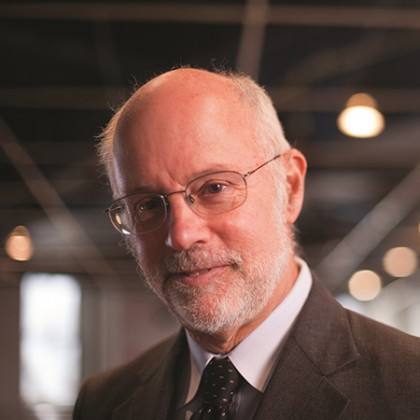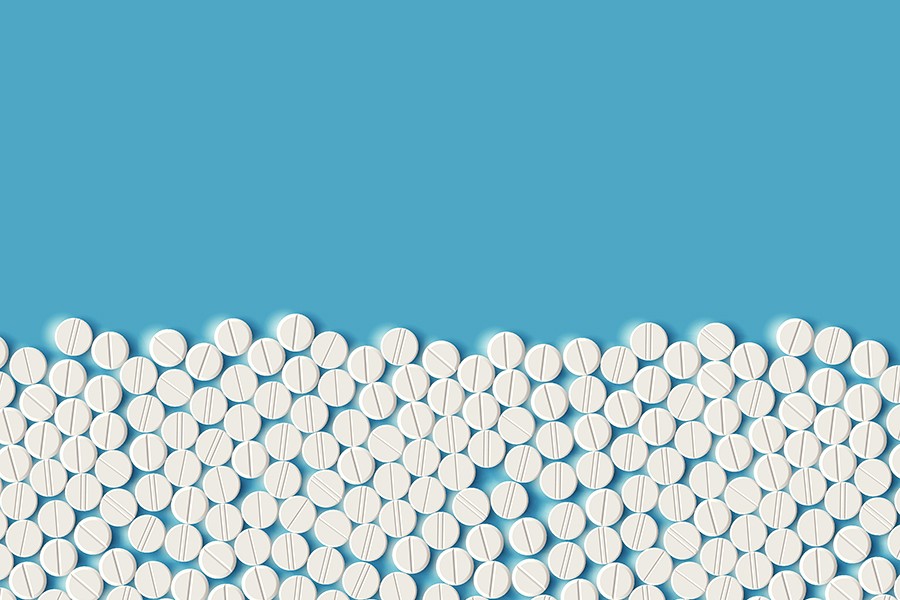Prescription drugs are already unaffordable for many: The price tag last year in the United States was $425 billion, one out of every 10 health care dollars spent, and rising.
Now, with the future of health care reform up in the air with the potential repeal of the Affordable Care Act, consumers could be looking at a step back—perhaps a giant step back—in terms of drug affordability and access to care.

Image caption: Gerard Anderson
Johns Hopkins health policy expert Gerard Anderson, a professor at JHU's Bloomberg School of Public Health, is part of an envoy of experts who will speak about prescription drug pricing at the National Press Club in Washington, D.C. tomorrow. The wide-ranging conversation will examine how companies price their drugs, what alternatives exist, and how the government might be able to help sick people gain access to the medicine they need.
Anderson's recent work has focused on medical costs at for-profit hospitals—he teamed up with Carey Business School researcher Ge Bai for a study that found that some providers charged up to 20 times more than what a procedure costs.
In light of the uncertainty surrounding the future of the ACA, and in advance of next week's event, the Hub reached out to Anderson for his thoughts on the rising price of prescription drugs, the business of big pharma, and the ethics of the current medical marketplace.
What factors into prescription drug pricing in the U.S.?
Basically there are two types of drugs—brands and generics. Much of the attention has been about high-priced branded drugs entering the market. Most people can't afford them, and so it's limiting access to very important drugs. There is no name for the current model—economists haven't named it yet—but it is essentially a profit-maximizing model, and unfortunately recognizes that most people will not be able to afford the drug. We're trying to figure out a way to get access to these people.
Also see
For generic drugs, the competitive model works reasonably well as long as there are competitors. People like Martin Shkreli have found generic drugs that do not have any competitors and have been able to raise the price significantly.
What do you see as alternatives to the current drug-pricing model?
We could change the financial incentives in the private sector, or engage in some kind of government regulation to bring the prices down. The objective is getting the prices lowered so that everybody can afford the drugs, but at the same time bringing enough money into the system—increasing the volume—so that pharmaceutical companies can continue to innovate. What we hope is that if you cut the price by a factor of five, you'll get five times more people to take the drug. Then, essentially everybody benefits, and the drug company gets the same amount of money, but we get five times more people who get these drugs.
Video credit: Bloomberg School of Public Health
How long would it take for the market to stabilize after making such changes?
The market responds very quickly, but we have to change the incentives for people who price the drug and negotiate the drug prices. Under the incentives that are currently in place, only about 10 to 20 percent of the people who have the disease get the drug. And most of these drugs treat important public health diseases, so we want everybody who needs to drug to get the drug.
What do you see as the role of government in regulating the price of drugs?
We want to make sure that everybody gets access to drugs, and right now the market does not seem to guarantee good access to these expensive pharmaceuticals. So I think we probably need some kind of government regulation to get us to a place where all of us have access.
What effect does the current health insurance debate in the U.S. have on drug pricing?
So far, it has had very little effect. If the [American Health Care Act of 2017] had passed, it probably wouldn't have had much of an impact on pharmaceutical pricing. Pricing is the next thing in the legislative lineup to deal with once we either have or have not dealt with the Affordable Care Act.
What are some of the ethical implications surrounding the drug pricing debate? Are there medical conditions that are just too expensive to develop drugs for?
There's a market for almost any disease—these are called orphan drugs. But the question is, "Can we afford the high price for these drugs?" There's a new drug, for example, that came on the market called Spinraza, and it costs $750,000 for the first year, and $375,000 in subsequent years. It's for babies that have a genetic defect and is hopefully able to give them a normal life, but it's prohibitively expensive. The question is, "Can anyone afford $750,000 and $375,000 in subsequent years?" So that's what we're trying to address.
Posted in Health, Voices+Opinion, Politics+Society










